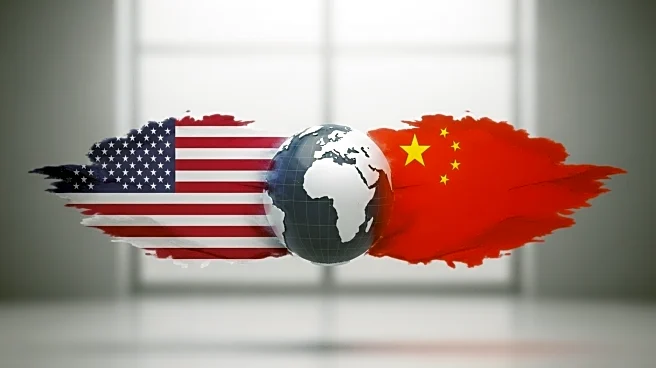What is the story about?
What's Happening?
Europe is facing a complex geopolitical challenge as it navigates its relationships with the United States and China. Historically, Europe's China policy was influenced by Washington's stance, but recent developments have shifted this dynamic. The Trump administration's unpredictable approach to China and its failed diplomacy on Ukraine have left Europe in a precarious position. European governments are now grappling with how to balance economic interests with security concerns, particularly as China continues to assert itself globally. The EU's strategy has evolved from viewing China as a partner to recognizing it as a competitor and systemic rival, leading to increased investment screening and export controls.
Why It's Important?
The shifting dynamics in Europe’s relationships with the US and China have significant implications for global trade and security. As Europe attempts to assert its strategic autonomy, it faces the challenge of maintaining economic ties with China while addressing security threats posed by Russia. The EU's approach to China could influence global trade policies and impact industries reliant on Chinese technology and resources. Additionally, Europe's ability to navigate these relationships will affect its role in international security, particularly in relation to the ongoing conflict in Ukraine and broader geopolitical stability.
What's Next?
Europe must decide on its strategic approach towards China, balancing trade protectionism with the need for technological collaboration. The EU may need to strengthen its own initiatives, such as the 'global gateway' infrastructure, to counter China's Belt and Road Initiative. Furthermore, Europe will have to manage its security concerns, particularly in light of China's support for Russia, while ensuring continued US engagement in European defense. The outcome of these decisions will shape Europe's future geopolitical stance and its ability to influence global affairs.
Beyond the Headlines
The rise of far-right and nationalist forces in Europe, inspired by China's authoritarian model, poses a threat to liberal democracy. European governments must demonstrate that democracy can deliver economic success to counter this trend. Additionally, the war in Ukraine highlights the strategic importance of Europe's relationship with China, as Beijing's stance on the conflict affects European security interests. These underlying dilemmas will continue to influence Europe's foreign policy and its ability to maintain stability within its borders.















